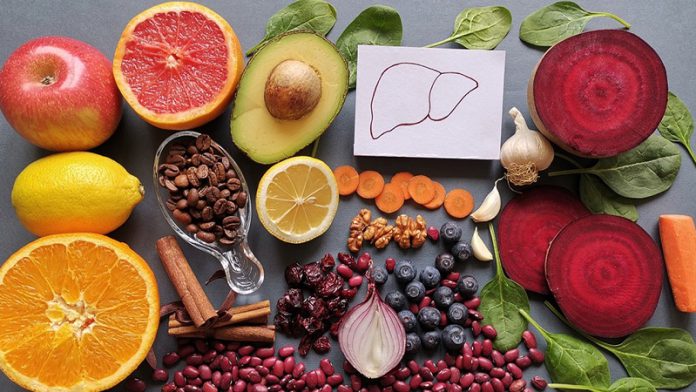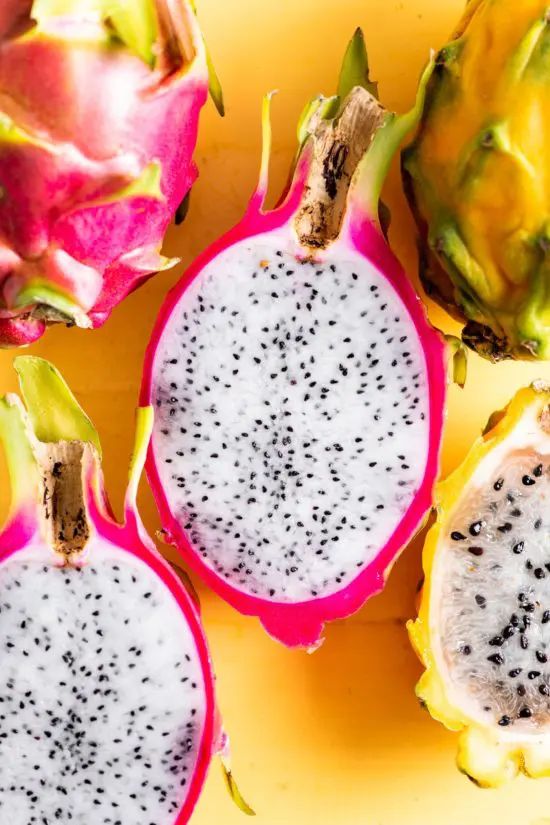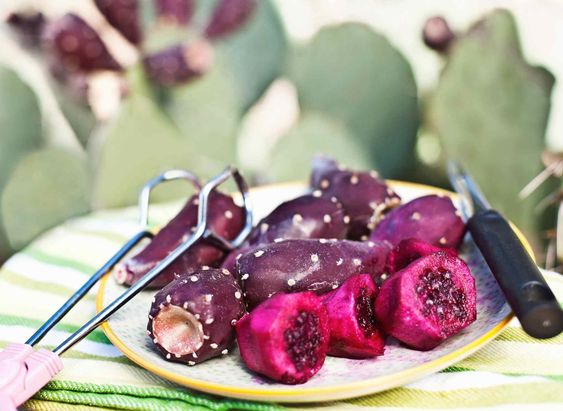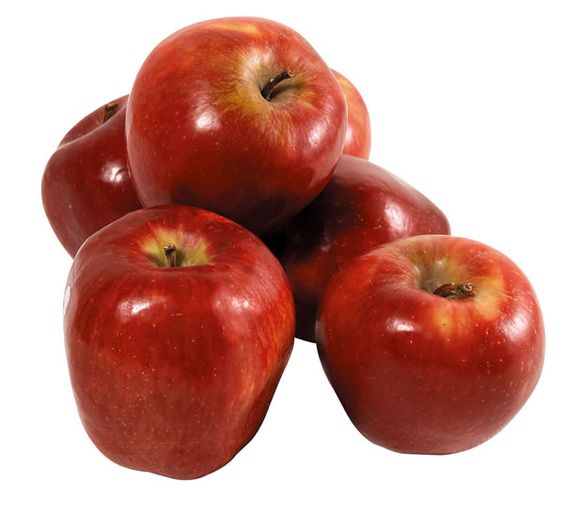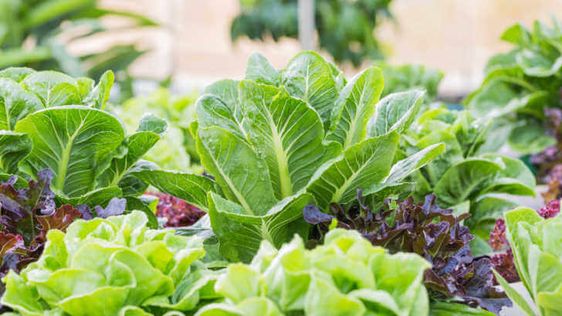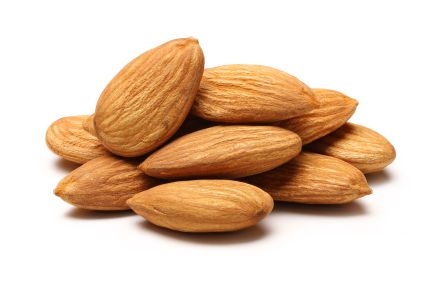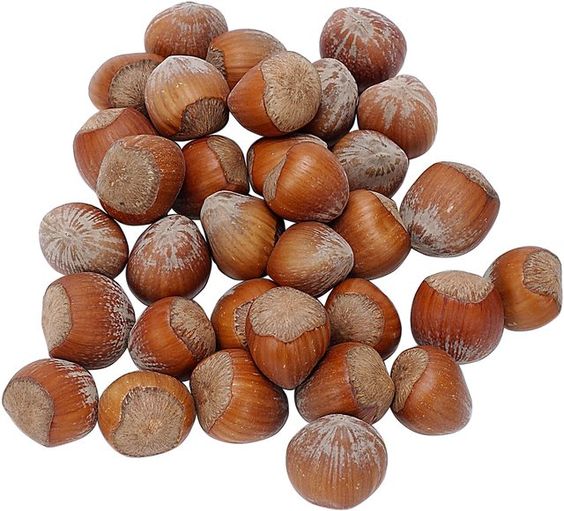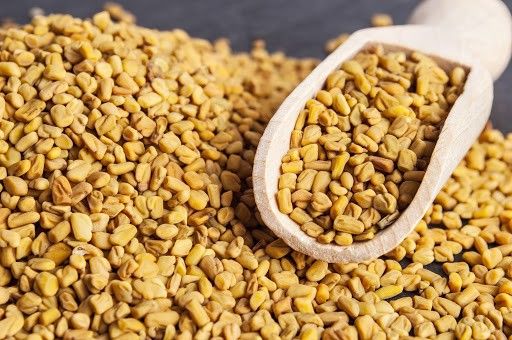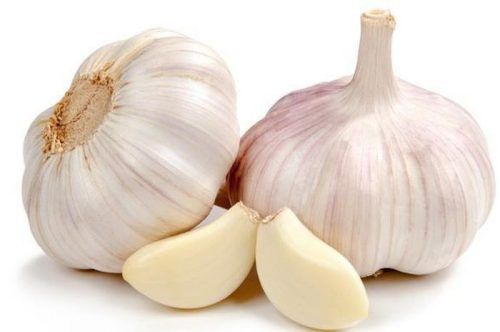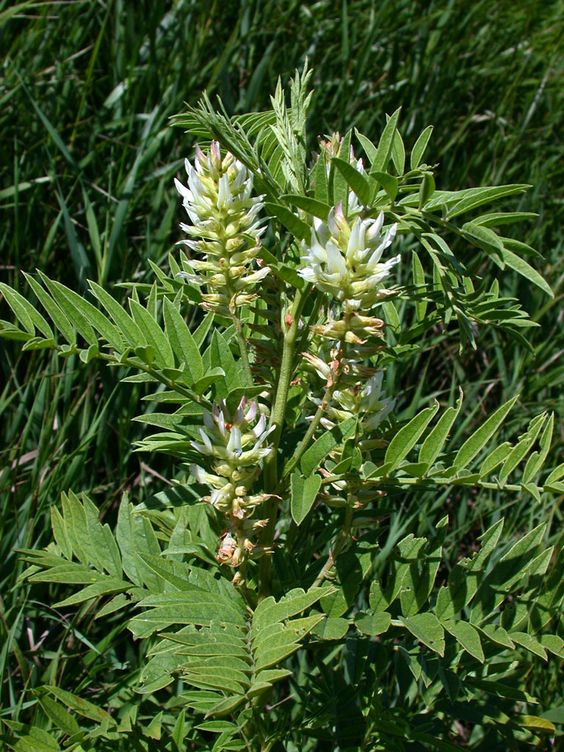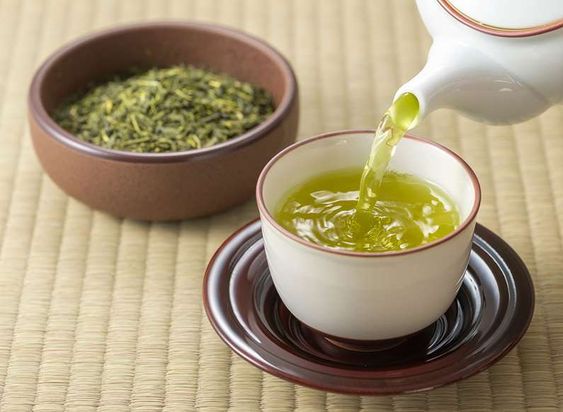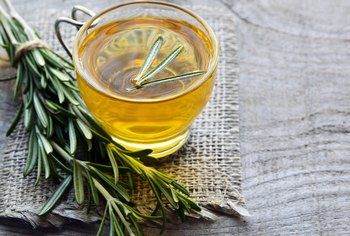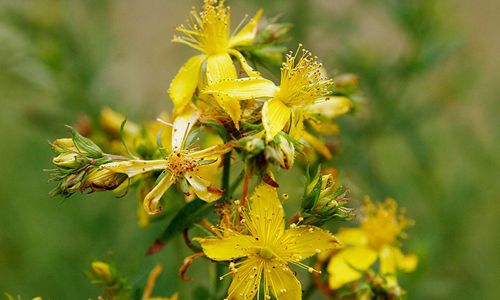Olidhealth.com – Liver is one of the complex organs in your body which is important to keep your entire body stay healthy. It has many functions such as regulating blood sugar levels, protecting the body against disease and infection, and the main purpose is to filter toxins in your body. Some of the toxins are stored in the liver and decrease liver function as a toxic filter.
How to detox the liver and cleanse it to improve its function? To reduce the burden on the liver, we can consume the right foods to help reduce toxins in our liver. There are amazing foods and drinks that help cleanse and detox your liver. The essential compounds in each of these foods have the benefit to improve liver function for flushing out toxins. Furthermore, this food may be help treat people with liver-related diseases.
To know about this food and its relation to detoxing the liver, firstly we should investigate the liver disease itself and what causes the disease to happen in the first place.
Lifestyle and Liver-related Disease
As we mentioned about liver disease, decreasing liver function to filter toxins can be caused by other complication diseases such as diabetes and obesity. The buildup of toxins in the liver can inflate the liver and scar its cells. A damaged liver can lead to cirrhosis and excessive fat in the liver caused by obesity also can lead to fatty liver disease.
Fatty liver disease can be dangerous since it can be undetectable. There are 2 types of this disease:
- Alcohol fatty liver disease – The earliest stage of liver disease caused by alcohol misuse [1].
- Non-alcohol fatty liver disease – The hepatic disease caused by an uncontrollable buildup of fat that can inflate the liver and lead to fibrosis or cirrhosis [2].
Usually, people don’t care about what they eat and what happens to their bodies. Junk food that has saturated fat can damage the liver for long-term consumption and so alcoholic beverages should be avoided. High cholesterol levels in the body can affect liver performance to remove toxins. Long-term alcohol drinkers are susceptible to have alcoholic liver cirrhosis. Misuses of alcohol can also increase the risk of disease besides the liver such as heart disease or even stroke.
This disease can be escalated to dangerous situations and cause other complications if don’t be treated well. Before this thing happens, preventing it by taking control of your dietary routine is one of the choices. A healthy lifestyle can be done if you know what foods or drinks your should take to keep your liver healthy.
Amazing Food To Detox Your Liver
The term “detox” in the liver can be referred on several ways. It could eliminate dangerous substances, change their chemical properties to harmless substances, or transport them to the excretory system. Free radicals caused by oxidative stress and buildup saturated fat in the liver can decrease liver function which can increase the risk of liver-related disease.
There are various ways to make your liver stay healthy, one of them is consuming liver-friendly food [3]. There are foods that can cleanse your liver and maintain liver function properly. A variant of foods and drinks can detoxify your liver since they have antioxidant properties to flush out toxins and enhance protection to your liver.
Dragon Fruit
This dragon skin-like fruit have the benefit of improving liver function and maintaining blood sugar level. Vitamin C and betacyanin compound in dragon fruit serve as antioxidants to fight off free radicals and protect the liver cells. Studies suggest that dragon fruit is used to treat fatty liver disease since it can reduce the buildup of fat in the liver and maintain cholesterol levels. Another benefit of dragon fruit is the lycopene compound which has to benefit of preventing the development of liver cancer.
Prickly pear
Prickly pear or Opuntia ficus-indica is a cactus fruit that has benefits to your liver. It has a different shape than dragon fruit. This cactus fruit is native to the western hemisphere and provides vitamin C and magnesium to improve liver health. Other variety of opuntias such as Opuntia streptacantha or red-skinned cactus, Opuntia lindheimeri or purple-skinned cactus, and Opuntia stricta or yellow-skinned cactus have rich in quercetin compound.
Some studies found that different varieties of prickly pear hold different flavonoids compounds. There are flavonoids such as kaempferol, quercetin, and isorhamnetin which have the benefits of detoxifying your liver. Extract of this fruit can promote metabolize alcohol. It also can maintain cholesterol and enzyme levels in the liver.
Preparing prickly pear for consumption is a little bit troublesome because of its spike. Carefully removing its skin and juicing it with the seed could be an option to process this cactus.
Blueberry
Blueberry is one of the best berries that have the benefit to promote liver health since it has rich in vitamin C. The blue pigment in blueberry also serves as an antioxidant agent called anthocyanin. Although chemical compounds with antioxidant properties can keep your immune stay high, they also have another benefit to reducing the risk of fibrosis and liver-related disease.
There are also edible berries that have antioxidant properties such as elderberry, gooseberry, blackberry, etc. Chemical compounds with antioxidant properties are important to fight off free radicals and help cleanse your liver.
Grapes
Grapes have been cultivated over the world to produce cooking ingredients, alcoholic beverages, or just be eaten as fresh fruits fresh fruit. The grapes have many variants and their color depends on their species. Grapes with darker red color have more anthocyanin compounds than lighter color grapes. Anthocyanin can be used as an antioxidant and anti-inflammation agent in your body to help defend against free radical scavengers. Moreover, it also helps the liver function to filter toxins and maintain enzyme levels in the liver.
A chemical compound like resveratrol alongside vitamin E and other flavonoids is also present in grapes that have the benefit to reduce hepatic fibrosis and prevent liver disorders. According to the expert, resveratrol improves liver health and help protect liver cell as an antioxidant agent.
Grapefruit
Grapefruit and grapes are different kinds of fruit, though the name is literally identical. This citrus fruit is called grapefruit since growing in clusters like grapes. The nutrition in grapefruit is not too different from common citrus which has high vitamin C and fiber.
This fruit has high antioxidants such as naringin and naringenin which can reduce the development of hepatic fibrosis. Some studies believe that naringin can improve liver function to metabolize alcohol. This compound also can reduce the buildup of fat in the liver and help break down alcohol.
Apple
This common fruit that can be easily found in the market has special benefits to your liver. Apple has a polysaccharide compound called pectin as fiber to help remove toxins and bad cholesterol. This fiber is also can be found in citrus fruit such as lemon and orange.
Another essential compound in apple is malic acid serve as detoxification in the gallbladder. Malic acid can bind excessive and toxic metal in your body and remove it from the liver. It also can soften gallstones and cleanse the gallbladder and liver. However, don’t overconsume apples because they can upset your stomach cause overload gastric acid, and may lower your blood pressure. Consume apple as fresh and raw to have more its health benefit or it can be blended to make juices.
Cruciferous Vegetables
The Brassicaceae family is known as Cruciferae plants such as broccoli, cauliflower, cabbage, brussels sprout, kale, mustard green, etc. These veggies have health benefits to your liver because they can induce glutathione compounds which can trigger enzymes to cleanse carcinogens and toxic compounds like free radicals and aflatoxin. Cruciferous vegetables also have rich in glucosinolates that can serve as anti-cancer and support metabolic detoxification based on some research.
Beetroot
This purple tubers plant has a ton of benefits for your health, especially in your liver. It has high fiber and vitamin C to improve liver health. Beetroot also has anthocyanin that serves as an antioxidant to protect liver cells against free radical scavengers. The betalain compound in the red color of skin and flesh can reduce oxidative stress and inflammation.
Studies suggest that essential compounds in beetroot can activate the liver enzymes and help detox your liver. Other nutrients such as vitamin A and iron can also enhance liver function to flush out toxins. The best way to consume beets is to blend them and drink the pulp.
Almond
Chocolate bar with almonds can’t be separated as favorite meals. However, almonds themselves have benefits to your liver. It has high glutathione and omega 3 fatty acids to eliminate bad cholesterol in the liver. Vitamin E in almonds also can support the liver to flush out toxins. Studies suggest that the consumption of almonds can be a healthy effect on people with non-alcoholic fatty liver disease. Other benefits of almonds are reducing blood pressure and lowering blood sugar levels.
Hazelnut
hazelnut is a popular nut that has polyunsaturated fatty acid and monounsaturated fatty acid as healthy nutrition. Studies suggest that oleic acid in hazelnut may decrease cholesterol levels and be good for treating people with non-alcoholic fatty liver disease. The properties of oleic acid are not directly detoxing your liver but reduce the buildup of saturated fat and improve liver performance. Hazelnut also has a high squalene compound that can reduce liver cirrhosis and treat patients with acute hepatitis.
It also has a trace amount of micromineral such as copper, manganese, and selenium which can help enzyme production in the liver. Aside from its benefits for liver health, another use of hazelnut extract is to reduce the risk of heart-related disease, maintain blood sugar, and increase insulin sensitivity.
Usually, people cook hazelnut with the roasting technique. However, it can decrease its nutrition content. To maximize its health benefit, you can boil it or eat it raw. You can also take hazelnut oil as a variant in your dish.
Walnut
This brain-like shape nut has benefits for your health, especially to your liver. The amino acid arginine and alpha-linolenic acid in walnut can help remove toxin ammonia in the liver. It also has a glutathione compound that serves as a toxins purifier. Some studies say that walnut also has phenolic and tocopherol substances which can treat people with non-alcoholic fatty liver disease. Walnut has less squalene compound than hazelnut but has the benefit to improve liver health.
Another variant of walnut is black walnut or the botanical name is Juglansnigra. Black walnut has a special substance called juglone that can reduce chronic liver disease. As reported by the expert, juglone alleviates hepatic fibrosis and enhances the protection of liver cells against oxidative stress. Moreover, juglone may have anti-tumor and anti-cancer properties to prevent the risk of chronic liver disease.
Fenugreek Seeds
Fenugreek seeds or their botanical name Trigonella foenum-graecum are less known in common folk. It’s native in Mediterranean and southern Europe but mostly produced in India. In Asia, Fenugreek seeds are commonly used as a spice and medicine in Ayurveda to treat anemia and detoxify the blood.
Essential compounds in Fenugreek seeds are a polysaccharide that has a hepatoprotective effect to improve antioxidant enzymes in the liver and help to build hepatic tissue. Choline also presents in this seed that is important to keep maintain cholesterol levels in the liver. Experts suggest that fenugreek seeds have saponin that can prevent the risk of non-alcoholic fatty liver disease. It is rare to find research about fenugreek seeds and their function to the liver or to reduce liver-related disease. However, its have the benefit to improve liver function in different ways.
Other benefits of fenugreek seeds are for curing sore throats, relieving pain, improving kidney health, and treating type 2 diabetes. You can take 2-3 fenugreek seeds and combine them with tea or coffee for therapy to improve your health.
Garlic
Garlic is commonly found as an herb and spice to enrich flavor in Asian cuisine. However, it has many benefits to your health, especially to your liver. Garlic has micromineral such as selenium and sulfur to help the liver remove toxins from your body.
Selenium can be converted into selenoprotein for the maintenance of liver cells and protect from damage caused by free radicals and oxidative stress. Sulfur is also essential for glutathione production. Glutathione is a natural antioxidant in our body that functions to detoxify unknown enzymes and flush out toxins in the body.
Garlic also has anti-bacterial and antioxidants compounds such as allicin and the amino acid arginine which have a hepatoprotective effect to promote liver health.
Historically, garlic was used as traditional medicine in Middle Asia and East Asia to treat liver disorders, tuberculosis, hypertension, bronchitis, etc. Besides its benefit for the liver, it also helps lower blood sugar and cholesterol levels, regulate blood pressure, and improve the immune system.
If you want to take a garlic supplement, you need a prescription from your doctor. Excessive consume garlic supplements can be fatal because allicin can damage your liver.
Turmeric
Turmeric is a popular spice in Asia and is used in Asian cuisine or ayurvedic medicine in pill extract form. In traditional medicine, turmeric can serve as a pain and inflammation reliever. This plant has a curcumin compound that can repair liver cells and has antifibrotic properties to prevent or even reverse cirrhosis. Based on the expert, Turmeric is chosen as a potential therapy for chronic liver disease and may have the benefit of treating people with non-alcoholic fatty liver disease since it has antioxidant and anti-inflammation properties.
Ginkgo Biloba
Ginkgo biloba is a “living” fossil that has been widely used in Asia medicinal, especially in China and Japan. This plant has the benefit to keep your liver healthy because it has antioxidant agents and may have hepatoprotective properties. Its have natural flavonoids such as quercetin, kaempferol, and isorhamnetin that serve as antioxidants to help maintain enzyme level in the liver. Based on some research, an essential compound in ginkgo can prevent damage caused by alcohol-induced and reduce the risk of fibrosis.
Besides its benefit to the liver, It has anti-inflammatory and anti-histaminic properties to reduce allergic reactions. Furthermore, ginkgo also has contributed to treating patients with memory loss, depression, and neurotransmission disorder. You can take ginkgo biloba as a food supplement to enhance your health.
Licorice
Licorice or Glycyrriza uralensis is a natural herb that is native to Europe and Asia. In British English is called liquorice. The main benefit of this herb is to treat ulcers and digestive problems. However, licorice also has benefits to keep your liver healthy. Some research found that licorice roots have a hepatoprotective effect on your liver. It can improve glutathione levels to help detoxify toxins and free radical scavengers.
The active compounds in licorice such as glycyrrhizic acids, liquidations, liquiritigenin, and some flavonoids may have benefits to your health, especially to your liver. Some researchers suggest that glycyrrhizic acids in small amounts can prevent liver injury and help detox your liver by enhancing the immune system. Another compound also served as an antioxidant to flush out toxins.
Licorice roots are usually safe to eat in small portions. However, don’t take too much of it. Licorice contains glycyrrhizin acids that have a side effect on your heart and kidney if consumed in a large amount. So be mindful to take it as your dietary routine.
Ginseng
This herbal root has an important role in Traditional Chinese Medication to treat various diseases and metabolism disorders. To cleanse your liver, Ginseng has a saponins compound called ginsenosides which have hepatoprotective properties for the liver. Some studies suggest that ginseng has a beneficial role to treat liver-related diseases such as cirrhosis, fatty liver disease (non-alcoholic or alcoholic), and chronic hepatitis. The active compound in ginseng can reduce fatty liver and flush out toxins since it has antioxidant properties to do that.
Coffee

Studies suggest that coffee can reduce the development of liver cancer and cirrhosis also other chronic liver diseases such as hepatocellular carcinoma and hepatitis C infection. Glutathione substance level in your liver increases along with daily coffee consumption which can help the liver to kick out toxins.
Although its benefits the liver, it can disturb cholesterol levels. Studies believe that paraxanthine, kahweol, and cafestol in coffee can slightly increase cholesterol levels. However, it still needs further research for its long side effect. For safety consumption, Drinking coffee 1 -2 cups a day can reduce the development of fibrosis and boost your mood throughout the day.
Green Tea
People in Asia, especially in japan known this tea have many health benefits over centuries. The power of green tea is found in antioxidant compounds like catechin. This substance can help to improve liver function. Catechin also has a contribution to helping cleanse your liver and kick out toxins substances. Studies suggest that green tea consumption can lower the risk of non-alcoholic fatty liver disease. Moreover, green tea is also herbal tea that is good to boost your mood and improve brain functions
Rosemary Tea
This herbal tea is popular among tea lovers after green tea. Extract rosemary can be brewed to make this excellent tea. Besides it has a relaxation effect on your mind, it also has the benefit to your liver. Rosemary has rosmarinic acid that serves as an antioxidant agent. Studies say that rosmarinic acid has a hepatoprotective effect to reduce the risk of liver-related disease and improve the liver to throw toxins out of the body. this active compound also can induce glutathione levels in the liver.
Blue Tea
Butterfly-pea flower tea or blue tea is a unique herbal tea that has the benefit of detoxifying your liver. The blue pigment called anthocyanin serves as an antioxidant to help the liver function for filtering toxins and flush it out of the body.
As reported by the expert, flavonoid and phenolic compounds in blue tea can slightly increase glutathione levels in the liver and have a hepatoprotective effect against liver toxicity. As we mentioned before, glutathione is a natural antioxidant to detox your liver from unnecessary enzymes and oxidative stress.
Coneflower
Coneflower or echinacea is a herb that is commonly used to treat flu and fever. The plant is native in North America and become best selling herb for several medications. The flower and leaves have potential compounds such as caffeic acid, polysaccharides, and alkamides to improve liver health.
Some research suggests that caffeic acid in coneflower can prevent damaged liver by malignant metal and oxidative stress. It also has contributed to reducing hepatic lipid accumulation and is good for treating people with non-alcoholic fatty liver disease. Polysaccharides in coneflower also may improve antioxidant enzymes in the liver to detox toxins in your body. However, it needs further research to examine its contribution to liver health.
In some cases, consuming coneflower as tea or additional herb can cause allergic reactions. We also recommended not taking this plant longer than 8 months. Expert says that it can damage your liver. Take this warning before consuming it for a long term
St John’s Wort
St john’s wort leave and flowers are usually brewed to make herbal tea. Its mainly used to treat depression and neuro-related diseases. However, The extracted st john’s wort leaves and flowers may have the benefit of cleansing the liver and detoxing malicious substances. Some studies found that antioxidant properties in this plant can clearance liver toxication and prevent liver scarring.
St John’s wort has many active compounds such as flavonoids, phenolic acid, and phloroglucinols that can help break down toxins in the liver. Despite its benefit to your liver, it also can reduce efficiency on other medications. For safety consumption, don’t mix up this plant with other medications.
Milk Thistle
Milk Thistle or Silybum marianum is an herb known for treating liver and gallbladder disease. The seed has the benefit to treat liver disease since it has a silymarin compound to reduce its symptoms. Another active compound in Milk Thistles such as quercetin, chrysoeriol, taxifolin, eriodictyol, and palmitic acid can serve as antioxidant and anti-inflammation agents to fight off free radicals.
Based on some research, Milk Thistle extract can treat people with hepatitis C virus infection but need further explanation about its effectiveness. it also can be a herbal supplement for treating cirrhosis, hepatitis, jaundice, and other condition.
Milk Thistle can be served as healthy food. The leaves and flowers can be processed as salad and it doesn’t have side effects. The seed can be roasted and served as coffee. It can be an alternative choice to your dietary routine.
An additional Fact To Keeping Your Liver Stay Healthy
These foods and drinks can help you to cleanse and maintain your liver health. However, this is not the only way to archive that. Exercise regularly can lower the risk of non-alcoholic fatty liver disease since it can burn unnecessary fat in your liver.
As for diet tips, limit food high in fat, salt, and also sugar. Excessive food can build up in your liver and lower the function of the liver for the long term. In addition, don’t take too much of a supplement because can damage your liver. Fresh food is better than processed food added with fortified nutrition.
Reference
[1] https://www.ncbi.nlm.nih.gov/pmc/articles/PMC5513682/ – Alcoholic fatty liver disease in general
[2] https://www.ncbi.nlm.nih.gov/pmc/articles/PMC5719196/ – Non-alcoholic fatty liver disease in general
[3] https://www.ncbi.nlm.nih.gov/pmc/articles/PMC4488002/ – Partway to detox with food


